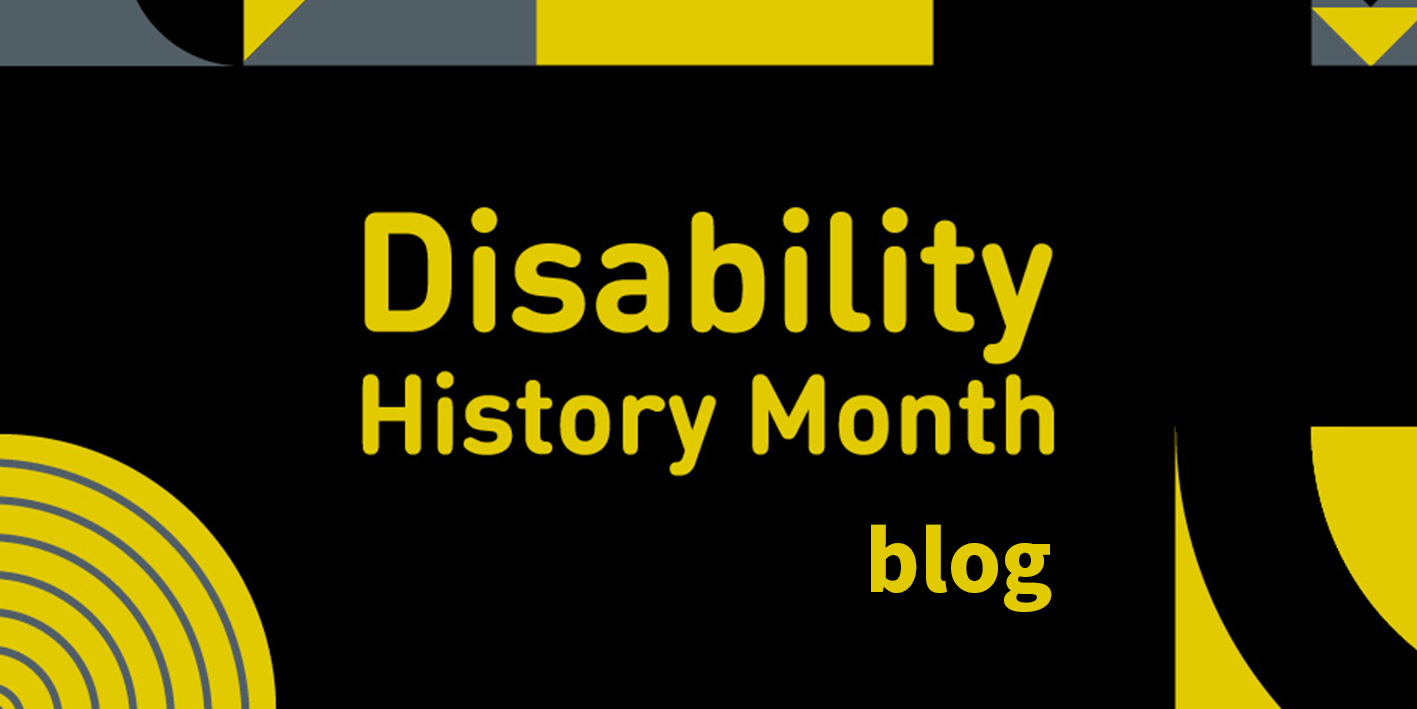DHM blog: Liberation Rep blogs about living with hidden disabilities

Student, Katie Blackwell, Disabled Students' Liberation Representative at the Students' Union, advocates for disabled students every day. In this blog for Disabled History Month (14 November - 20 December) Katie talks about her own experiences of living, and working, with hidden disabilities.
As a disabled person, there are a lot of things I had to wrestle with when it came to finding a job.
When you’re a child, it all looks easy. It’s like a checklist. You’d get older, go off to uni, finish and then *poof* a job would appear. However, one thing I didn’t consider as a healthy child running around a playground imagining what job I’d end up in, is how disability would affect this.
Like many disabled people, to the naked eye, I look perfectly fine. However, as someone with both mental and physical conditions which impact my life, I find a lot of things really difficult. When considering employment, I have to take into consideration the usual things, like travel or finances, but also on top of that, I have to contend with severe and incredibly limiting sensory issues, struggles with social interactions and situations, and the seemingly non-stop cycle of flare-ups.
When looking at job listings, my brain runs through a new checklist: Can I fit that around uni? How would I get there, and could I get home easily if I started to panic or flare up? What are the shift patterns like and would I be able to handle the length of them? What are the risks of me facing known triggers in this position?
And often, by the time I’d figured out the answers to those questions, I’d have either missed the application date, or decided that that job wouldn’t be for me.
When I did manage to apply, and make it through to interviews, one thing I heard often in feedback is that I didn’t talk enough, or that I seemed too nervous because I was fiddling or not making eye contact. Meanwhile, I felt like I was talking too much, and I would only answer the specific questions asked. One thing I’m not very good at in interviews is reading between the lines to figure out what other things they want me to say.
It wasn’t until I was 21 that I got diagnosed with both autism and endometriosis. Recently enough that It still feels unfamiliar to say out loud.
But since I got those diagnoses, I’ve felt relieved.
It wasn’t just that I’m a bit useless - like my brain was telling me - and the pain I was feeling finally had an explanation that wasn’t just the doctor telling me I was anxious.
I did finally get a job, working as a representative for disabled students in the students’ union, and since I’ve started it, I have heard from so many people that had the same struggles - especially those who were diagnosed late. Many of us had spent so long being told nothing was ‘wrong’ with us (and I use the phrase wrong in colloquial terms only) that by the time the answer was found, it was difficult to believe.
Another thing I have found in common with a lot of my disabled peers is that a lot of us wrestle with feelings of shame and embarrassment about our disabilities.
For me personally, I struggle to allow myself to use a mobility aid. Sometimes, during the endometriosis flares, I will lose feeling in my leg, however before my diagnosis, I would tell myself that nothing was actually wrong and that the walking stick that I own was only for people who had ‘real issues’, and after my diagnosis, it felt a little like a big sign saying ‘look at me!’ - a thing which I’d hate even more.
But this year, when talking to all of these new people, I started to feel more comfortable in identifying myself as a disabled person. I never thought of it as a bad word, but I was nervous to face the stigma that comes along with it, and I found it much easier to just hide and pretend it wasn’t there.
This Disability History Month, however, I’ve found it easier introducing myself as a disability representative, and talking to students about what they’d like to see, and learning as much about new conditions as possible! And I think it’s high time we encourage others to do the same.
Together, we can make the workplace - and the University as a whole - more accessible to students!
If you would like to contact Katie about her role as Disabled Students Representative go to her page on the Students' Union website: Disabled Students' Rep.
For more information please contact the Corporate Communications Team.


/prod01/wlvacuk/media/departments/digital-content-and-communications/images-2024/Diane-Spencer-(Teaser-image).jpg)
/prod01/wlvacuk/media/departments/digital-content-and-communications/images-18-19/220325-Engineers_teach_thumbail.jpg)
/prod01/wlvacuk/media/departments/digital-content-and-communications/images-2024/241024-Dr-Christopher-Stone-Resized.jpg)
/prod01/wlvacuk/media/departments/digital-content-and-communications/images/Maria-Serria-(teaser-image).jpg)
/prod01/wlvacuk/media/departments/digital-content-and-communications/images-2024/241014-Cyber4ME-Project-Resized.jpg)
/prod01/wlvacuk/media/departments/digital-content-and-communications/images-2024/240315-Research-Resized.jpg)
/prod01/wlvacuk/media/departments/digital-content-and-communications/images/Kabaddi-WC-(teaser-image).jpg)